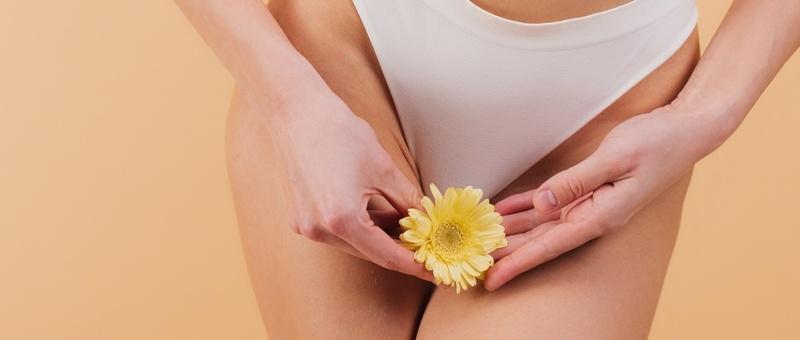
Quelles sont les causes d'un vagin malodorant après un rapport sexuel ?
Peer reviewed by Dr Krishna Vakharia, MRCGPLast updated by Lawrence HigginsLast updated 25 Aug 2023
- TéléchargerTélécharger
- Partager
Un vagin sain n'est jamais inodore. Il est tout à fait normal que votre vagin ait une odeur naturelle qui vous est propre. Mais il peut y avoir des raisons pour lesquelles votre vagin a une odeur différente de la normale après un rapport sexuel. Nous examinons ici les raisons de cette différence et si vous devez faire quelque chose pour y remédier.
Dans cet article :
Poursuivre la lecture ci-dessous
How should a vagina smell?
Your vagina is a carefully balanced ecosystem and will usually be a host to a community of good bacteria. The main bacteria is called Lactobacillus, similar to the type found in live yoghurts.
Lactobacillus generates lactic acid and hydrogen peroxide which keeps vaginal pH at the ideal range of 3.5-4.5. These acidic conditions act as a disinfectant and discourage unwelcome bacteria from causing infections. It is these natural bacteria that can contribute to a vagina's natural scent.
Choix des patients pour Problèmes vaginaux et vulvaires

Santé des femmes
Qu'est-ce que la dermatite vulvaire ?
La dermatite vulvaire affecte la peau autour du vagin. Son traitement dépend de la cause sous-jacente. Nous avons demandé à un dermatologue de nous aider à comprendre pourquoi vous pouvez souffrir de dermatite vulvaire et comment elle peut être traitée.
par Victoria Raw

Santé des femmes
Néoplasie intra-épithéliale vulvaire
La néoplasie intraépithéliale vulvaire (NIV) est une affection cutanée de la vulve. Il ne s'agit pas d'un cancer, mais elle peut se transformer en cancer si elle n'est pas traitée.
par le Dr Colin Tidy, MRCGP
Vaginal odour and sex
Like the armpits, the groin has a high concentration of sweat glands. During exercise and sexual activity, it is normal for the genitals to get sweaty and this may contribute to a stronger vaginal odour.
However, if you notice a stronger fishy smelling odour after sex, it could be an infection called bacterial vaginosis (BV). BV occurs when the balance in the vaginal ecosystem is disturbed, allowing a bacterium called Gardnerella vaginosis to thrive. The infection causes thin, grey, fishy smelling vaginal discharge that is more pungent when in contact with semen. Your GP can help diagnose this and administer treatment.
Can semen cause vaginal odour after sex?
Semen is normally a white or grey coloured fluid that carries the sperm and has a mild chlorine-like smell. With sexually transmitted infections (STIs), it is possible for the semen to change colour to yellow or green and smell unpleasant. This means semen could be the cause of vaginal odour after sex.
After ejaculation into the vagina, most semen will either seep out or dry up. The vagina is a self-cleaning organ, and any remaining semen will exit the body via a woman's discharge. Sperm can survive for a maximum of five days inside the vagina.
Poursuivre la lecture ci-dessous
Other reasons for vaginal odour
Other things may affect vaginal smell, without meaning that there is something wrong with your hygiene or vaginal health. These sources of vaginal odours include:
Changements hormonaux
Vaginal odour may vary in response to your menstrual cycle, pregnancy and menopause.
Médicaments
Hormonal treatment such as the contraceptive pill and antihistamines can dry the vagina out and change its odour.
Régime alimentaire
There is no scientific proof that diet affects vaginal odour, but anecdotal evidence has suggested the smell of your vagina may change with certain foods, such as garlic, onions and strong spices.
If you have an unusual vaginal odour, particularly if accompanied by symptoms such as an itchy or irritated vagina, or a change in discharge, you should contact your doctor.
Potential causes include:
Mauvaise hygiène.
Sexually transmitted infections- such as trichomoniasis.
A forgotten tampon.
Rectovaginal fistula - an abnormal connection between the vagina and the rectum, most commonly due to bowel problems like inflammatory bowel disease, childbirth-related injuries, cancer or cancer treatments such as radiotherapy.
Vaginal and cervical cancer.
The dangers of over-cleaning
You may see lots of feminine hygiene adverts encouraging you to keep your vagina clean and smelling sweet - ignore these
Your vagina is self-cleaning. Using feminine hygiene products can affect your natural microbiome, leaving you more vulnerable to vaginal infections - and accompanying bad odours.
One study demonstrated that women using feminine hygiene products or douches were more likely to have bacterial vaginosis, yeast infections, sexually transmitted infections, and urinary tract infections (UTIs).
Avoid harmful products and simply stick to the following advice to keep your vagina healthy:
Wipe front to back when going to the loo.
Wash your external vaginal area with warm water or a mild soap when in the shower.
Avoid harsh or irritant soaps.
Don't douche.
Wear loose-fitting, breathable cotton underwear.
When menstruating, change tampons and sanitary pads every few hours or when your pads get wet or uncomfortable.
Historique de l'article
Les informations contenues dans cette page ont été évaluées par des cliniciens qualifiés.
25 Aug 2023 | Latest version
1 mai 2018 | Publié à l'origine
Auteur: :
Dr Anna Cantlay, MRCGP

Demandez, partagez, connectez-vous.
Parcourez les discussions, posez des questions et partagez vos expériences sur des centaines de sujets liés à la santé.

Vous ne vous sentez pas bien ?
Évaluez gratuitement vos symptômes en ligne